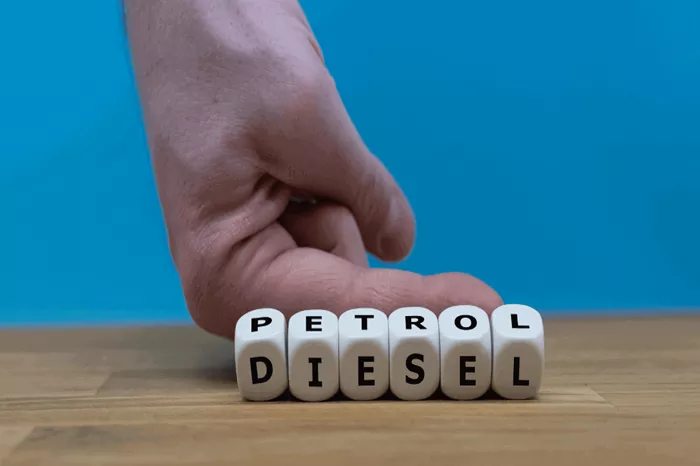The choice between petrol and diesel as a fuel for vehicles is a long-standing debate. While both have their merits and drawbacks, deciding which is better depends on several factors, including vehicle usage, environmental impact, and cost. This article will delve into the advantages and disadvantages of petrol and diesel engines to help you make an informed decision.
Understanding Petrol Engines
How Petrol Engines Work
Petrol engines, also known as gasoline engines, use a spark ignition system to burn fuel and produce energy. Here’s how it works:
Air-Fuel Mixture: Petrol engines use a carburetor or fuel injectors to mix air and petrol. The mixture is then introduced into the combustion chamber.
Ignition: A spark plug ignites the air-fuel mixture, causing a controlled explosion that pushes the piston downward, turning the crankshaft and ultimately propelling the vehicle.
Advantages of Petrol Engines
Quieter Operation: Petrol engines generally operate more quietly than diesel engines due to their spark ignition system and higher engine speeds.
Smoother Performance: Petrol engines are known for their smooth acceleration and responsiveness.
Lower Initial Cost: Vehicles equipped with petrol engines typically cost less upfront compared to their diesel counterparts.
Less Pollutant Emissions: While both types of engines emit pollutants, petrol engines produce less nitrogen oxides (NOx) and particulate matter, making them somewhat cleaner.
Disadvantages of Petrol Engines
Lower Fuel Efficiency: Petrol engines are less fuel-efficient compared to diesel engines. They consume more fuel over the same distance.
Higher Operating Costs: Due to lower fuel efficiency and higher fuel prices, operating a petrol engine vehicle can be more expensive in the long run.
Shorter Engine Lifespan: Petrol engines generally have a shorter lifespan compared to diesel engines due to the different stress levels in the combustion process.
Understanding Diesel Engines
How Diesel Engines Work
Diesel engines use a compression ignition system where the air is compressed to a high pressure and temperature, igniting the diesel fuel. Here’s a breakdown:
Air Compression: The engine compresses the air to a high temperature.
Fuel Injection: Diesel is injected into the combustion chamber where it ignites due to the high temperature, pushing the piston down and generating power.
Advantages of Diesel Engines
Better Fuel Efficiency: Diesel engines are significantly more fuel-efficient than petrol engines, making them ideal for long-distance travel and heavy vehicles.
Longer Lifespan: Diesel engines are built to withstand higher compression and therefore tend to last longer than petrol engines.
High Torque Output: Diesel engines provide more torque, which translates to better pulling power. This makes them preferable for towing and hauling heavy loads.
Lower CO2 Emissions: Despite their reputation, diesel engines actually produce less carbon dioxide per kilometer than petrol engines.
Disadvantages of Diesel Engines
Higher Initial Cost: Vehicles with diesel engines are typically more expensive due to their complex construction and high-performance components.
Louder and Rougher Operation: Diesel engines are generally louder and produce more vibrations than petrol engines.
More Pollutant Emissions: Although they produce less CO2, diesel engines emit higher levels of NOx and particulate matter, which can contribute to air pollution.
Higher Maintenance Costs: Diesel engines require regular maintenance and can be more expensive to service.
Cost Considerations
Fuel Costs
Petrol: Generally cheaper at the pump but consumed at a faster rate.
Diesel: More expensive per liter but provides better mileage, making it cost-effective over long distances.
Maintenance and Repair Costs
Petrol Engines: Simpler maintenance routines and cheaper parts.
Diesel Engines: Require specialized maintenance and parts, increasing overall costs.
See also: Diesel Vs Gasoline: Which Is Cleaner?
Environmental Impact
Petrol Engines
Greenhouse Gas Emissions: Produce more CO2 due to lower fuel efficiency.
Lower NOx Emissions: Emit less NOx and particulate matter compared to diesel engines.
Diesel Engines
Greenhouse Gas Emissions: More efficient, thus emitting less CO2 per kilometer.
Higher NOx and Particulate Matter: Contribute to smog and respiratory problems.
Performance and Usage
City Driving
Petrol Engines: Better suited for stop-and-go traffic due to smoother operation and quicker acceleration.
Diesel Engines: Not ideal for short trips as they need time to reach optimal operating temperature and can emit more pollutants when cold.
Long-Distance and Highway Driving
Petrol Engines: Provide a quiet and smooth ride but consume more fuel.
Diesel Engines: Offer excellent fuel efficiency and torque, making them ideal for long-distance travel.
Resale Value
Petrol Engines: Depreciate faster due to shorter lifespan and lower fuel efficiency.
Diesel Engines: Hold value better, especially for high-mileage vehicles, because of their longevity and efficiency.
Technological Advances
Petrol Engine Innovations
Direct Injection: Improves fuel efficiency and power output.
Turbocharging: Enhances performance and reduces fuel consumption.
Diesel Engine Innovations
Selective Catalytic Reduction (SCR): Reduces NOx emissions by injecting a urea solution.
Diesel Particulate Filters (DPF): Capture and store soot particles to reduce emissions.
Conclusion
Choosing between petrol and diesel engines involves weighing various factors, including cost, performance, and environmental impact. Here’s a summary to help you decide:
Choose Petrol If: You prefer a quieter ride, smoother performance, and lower upfront costs. Petrol is ideal for city driving and short trips.
Choose Diesel If: You value fuel efficiency, long-term savings, and better towing capacity. Diesel is better for long-distance travel and heavy-duty applications.
Ultimately, the decision depends on your specific needs and priorities. Consider your typical driving habits, budget, and environmental concerns to make the best choice between petrol and diesel.
Related topic:
When to Replace a Diesel Fuel Filter?

